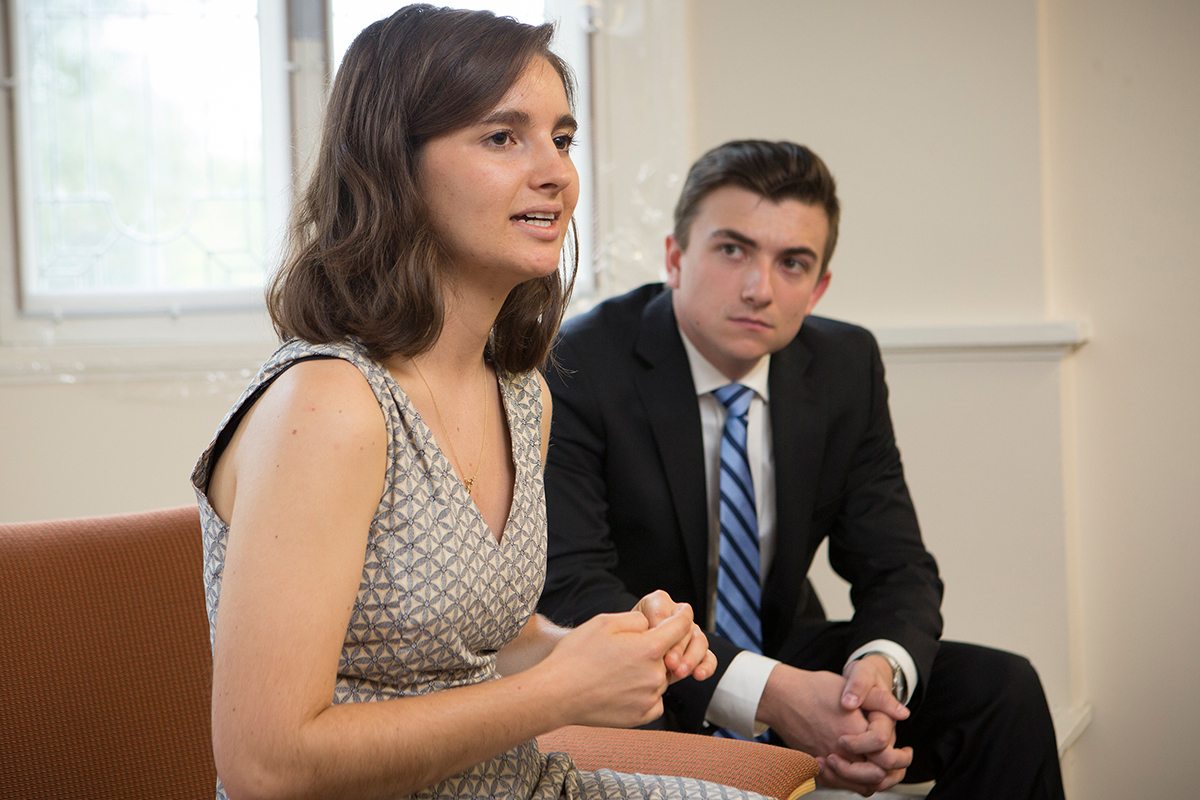Students propose grocery to fight food insecurity on campus
By Emily McNeill

With 10 all-you-care-to-eat dining halls and numerous a la carte eateries, Cornell bursts with food options. Yet according to a Cornell survey, 1 out of 5 students on campus skips nutritious meals due to financial constraints, accessibility or other factors.
On Sept. 10 at the 626: Center for Intercultural Dialogue, Emma Johnston ’16 and Matthew Stefanko ’16 spoke about their proposed solution to address food insecurity on campus: starting a grocery store in Anabel Taylor Hall.
“When people think [about] food insecurity, their initial thought is well it’s students or people who cannot afford food. But … you need to understand all the different intricacies that go into food insecurity and why simply looking at the cost isn’t enough,” Stefanko said.
Stefanko and Johnston, alongside Cornell students from a diverse array of academic backgrounds, began work on their grocery store proposal two years ago. Initially looking at models of food aid at other universities, such as student food pantries, they decided that a grocery store would better suit Cornell students by avoiding the stigma of seeking aid on campus, offering more nutritious options and promoting self-reliance skills, such as cooking.
Johnston and Stefanko discussed the intended location for their store, Anabel Taylor Hall. Although a new GreenStar is coming nearby on College Avenue, Johnston and Stefanko intend their grocery store to be a lower-priced complement to the local natural food chain.
Although confident in their plan, Johnston and Stefanko said their grocery store faces some challenges: high start-up cost, legal liabilities, skepticism about student leadership, as well as disbelief about the problem of food insecurity on an Ivy League campus known for its high-quality food. Despite the pushback, the grocery store team is seeking administrative approval.
John Lowry ’16 spoke about his work on improving food security in the Ithaca community. In collaboration with a team of his peers, Cornell Dining and the Food Recovery Network, Lowry began a food recovery program at Becker House, which has expanded to two dining halls and has donated more than 20 to 30 extra meals per week to local food pantries and kitchens.
As the students and their team expand their work on their projects, empty fridges and rumbling tummies may be a thing of the past for the Cornell community.
Emily McNeil ’16 is a writer intern for the Cornell Chronicle.
Media Contact
Get Cornell news delivered right to your inbox.
Subscribe